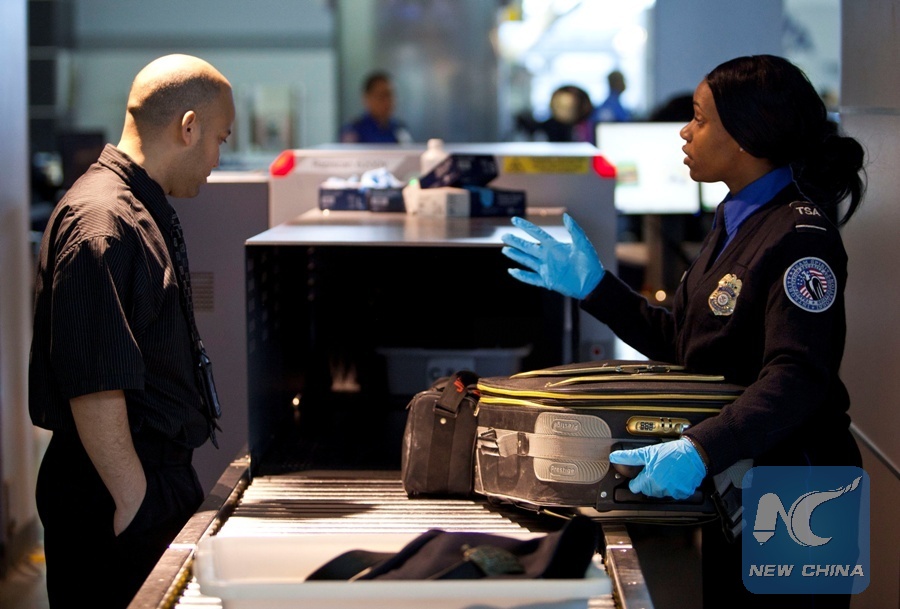
A Transportation Security Administration (TSA) security agent takes a traveler's luggage for a second security check at John F. Kennedy Airport in New York, U.S. on February, 29, 2012. ( REUTERS/Andrew Burton/File Photo)
WASHINGTON, Jan. 7 (Xinhua) -- U.S. Customs and Border Protection (CBP) officers conducted 30,200 searches of travelers' electronic devices in the fiscal year 2017, up nearly 60 percent from 19,051 in 2016, according to the newly published data.
About 80 percent of searches are of non-U.S. citizens, said an ABC News report, noting that only diplomats are exempt.
The number of searches of cellphones, laptops, tablets and other electronic data across U.S. airports spiked from 2015 to 2016 and the upward trend continued last year.
CBP released an updated policy directive earlier this month, which provided clarified guidance and standard operating procedures for searching, reviewing and retaining information found on these devices.
Under the CBP policies, U.S. custom officials are instructed to ask travelers to turn off their data transmission capability, such as putting a phone in airplane mode, before an officer looks at the phone, so that cloud data won't inadvertently be viewed.
They are also instructed to document passwords only for the purposes of opening a phone or other device, according to the directive. CBP officers must destroy the password once the device is opened.
The directive also distinguishes "basic" and "advanced" searches. A basic search is a review of the content on the phone. An advanced search is when CBP is required to conduct further forensic testing to retrieve the data based on "reasonable suspicion" of a violation of the law or a "national security concern."
If someone refuses to unlock a device, the device can be detained by CBP. U.S. citizens will always be allowed to enter the U.S., but their phones could be held back, generally for no more than five days.
For non-citizens, refusal to open a device could lead to denied entry. If incriminating information is found, CBP officers could refer the case to an investigative agency, like the FBI, or for non-citizens, deny them entry into the U.S.
CBP is authorized to search any device of any international traveler, no matter they are U.S. citizens or not, as they leave or enter the United States, similar to a bag search.

